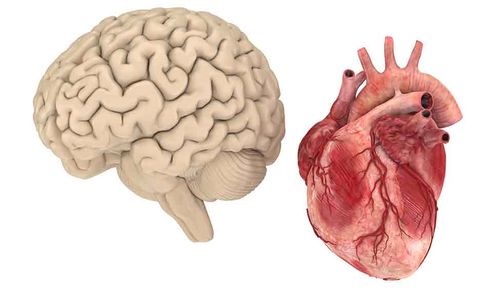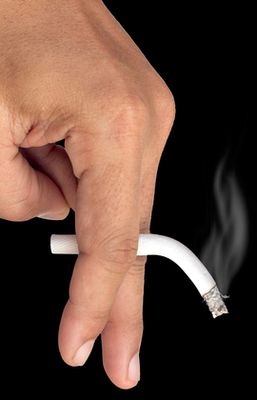Mindfulness-based cognitive therapy (MBCT) may be as effective as anti-depressants in preventing a relapse of depression, according to a study published in JAMA Psychiatry.
MBCT combines the concepts of mindfulness, or being aware of your thoughts and emotions and cognitive therapy, which helps you change the negative thought patterns that feed into depression.
The researchers analysed nine studies that included 1,258 people. Compared to those who received other types of treatment for depression, people who received MBCT were 31 per cent less likely to suffer a relapse over 60 weeks of follow-up.
The effects were similar irrespective of age, gender, education and marital status.
The benefits were greater for people who experienced more symptoms of depression at baseline.
“Mindfulness-based cognitive therapy appears efficacious as a treatment for relapse prevention for those with recurrent depression, particularly those with more pronounced residual symptoms,” the study concluded.
Cholesterol test? No fasting
New research from Denmark, Canada and the US suggests that you don’t need to fast overnight to have your cholesterol and triglyceride levels tested.
All countries except Denmark require that patients fast for at least eight hours before checking their cholesterol and triglyceride levels known as lipid panel. Non-fasting blood sampling has been in use in Denmark since 2009.
Non-fasting lipid profiles were compared with fasting profiles in about 3,00,000 people. There wasn’t any significant difference in triglycerides, total cholesterol, bad (LDL) cholesterol and good (HDL) cholesterol levels.
Many patients may avoid checking their cholesterol levels because they have to make a second visit to the hospital.
Not requiring fasting simplifies the process for doctors, laboratories and patients, especially for working people, children, people with diabetes and the elderly, and it also improves patient compliance.
“We hope that non-fasting cholesterol testing will make more patients together with their doctors implement lifestyle changes and if necessary statin treatment to reduce the global burden of cardiovascular disease and premature death,” the lead author noted.
Fasting cholesterol tests may, however, be needed for people with high triglycerides and for those recovering from pancreatitis. The research was published in the European Heart Journal.

Conception fireworks
Sparks fly not just when you experience love at first sight, it also happens at the moment of conception.
According to a study published in Scientific Reports, “a stunning explosion of zinc fireworks” occur when the sperm meets the egg.
What’s more, the size of the spark directly corresponds to the health of the egg and its ability to develop into a healthy embryo.
This is the first time these sparks have been observed in a human egg. Five years ago, zinc sparks had been observed in mice. "To see the zinc radiate out in a burst from each human egg was breathtaking," said the study's senior author.
When a sperm enters an egg it triggers a surge of calcium within the egg and zinc is released from the egg.
The findings can potentially help doctors identify the best eggs to transfer into the womb during in vitro fertilisation.
“There are no tools currently available that tell us if it’s a good quality egg. Often we don’t know whether the egg or embryo is truly viable until we see if a pregnancy ensues. That’s the reason this is so transformative. If we have the ability up front to see what is a good egg and what’s not, it will help us know which embryo to transfer, avoid a lot of heartache and achieve pregnancy much more quickly.”

Focus on driving
You can even miss an elephant standing by the side of the road if you are listening intently to something on the radio while driving, according to an Irish study.
The researchers applied the Perceptual Load Theory to driving. According to this theory, we only have a finite amount of attention and once we reach that limit, we cannot process any other information.
For the study, 36 people were asked to listen to traffic updates on the radio while driving in a full-sized driving simulator. Half of the participants had a simple task that did not require much focus—they had to listen for when reporter’s voice changed gender. The other half had a more complex task that required full attention—they had to listen out for updates on a specific road, the N248.
To analyse the drivers’ attention, the researchers introduced large, unexpected visual stimulus, an elephant or gorilla, by the side of the road. Only 23 per cent of the drivers focused on the complex task noticed the elephant by the side of the road, while 71 per cent of the drivers undertaking the simpler task noticed it.
Drivers required to do the complex task were also worse at obeying road signs and remembering which vehicle had just passed them. Their driving skills as measured by speed, lane position and reaction times to hazards were also negatively impacted.
“Road safety campaigns are so focused on telling us to keep our eyes on the road, and this is certainly important, but this research tells us that it’s simply not enough. We should focus on keeping our brains on the road. Anything that draws our attention away from driving can be problematic, even if it’s auditory like listening to the radio or having a hands-free phone conversation. That doesn’t mean that we should ban radios in cars, but that we should all be aware of the limits of our attention.” the lead researcher noted.

That's not smart use
A poll conducted by Common Sense Media that surveyed 1,240 parents and their kids finds that 50 per cent of teens are addicted to their mobile devices. Fifty-nine per cent of parents also agreed that their kids cannot keep their devices away.
The poll found that 72 per cent of teens felt the need to respond to texts and social-networking messages immediately and 78 per cent checked their devices at least hourly.
"Mobile devices are fundamentally changing how families go about day-to-day lives, be it doing homework, driving, or having dinner together," said the founder and CEO of Common Sense Media.
Increased use of mobile devices is causing daily conflict in homes, and it is negatively affecting children’s development and performance. One-third of parents and teens said they argued about device use daily.
Problematic media use and switching between multiple screens or between screens and people—as teens usually do—impairs their ability to lay down memories, to learn, and to work effectively. It also impairs the development of empathy.
It is not just kids, parents are addicted as well; 48 per cent of parents respond to texts and messages immediately and 69 per cent check their devices at least hourly. Fifty-six per cent of parents also admitted to checking their mobile devices while driving.
Did You Know
Tai Chi and other traditional Chinese exercises may improve cardiovascular health by lowering blood pressure, bad cholesterol and triglycerides. It may also lower depression and boost quality of life in patients with cardiovascular disease.
Journal of the American Heart Association

No sleep in new place?
Have you ever wondered why you cannot sleep well on the first night in a new place? A new study published in the journal Current Biology has an answer for the so called “first night effect”—one brain hemisphere remains more awake than the other when you sleep in a new place.
This phenomenon is similar to what is seen in some birds and sea mammals which usually keep one half of their brain awake while sleeping to be on high alert for danger.
The researchers measured the brain activity of 35 volunteers during two nights of sleep, a week apart. On the first night, part of the left hemisphere remained more active than the right hemisphere, specifically during a deep sleep phase known as slow-wave sleep.
When the left hemisphere was stimulated with irregular beeping sounds played in the right ear, there was a significantly greater likelihood of waking, and faster action upon waking, than if sounds were played in the left ear to stimulate the right hemisphere.
On the second night of sleep, there were no significant differences between the left and right hemispheres.
"The present study has demonstrated that when we are in a novel environment, inter-hemispheric asymmetry occurs in regional slow-wave activity, vigilance and responsiveness, as a night watch to protect ourselves," the study concluded.
Metformin safe
The most commonly prescribed medication for type 2 diabetes, Metformin, is also the safest for the heart, according to a study published in the Annals of Internal Medicine.
To compare the effectiveness and safety of different diabetes medications, the researchers analysed 204 studies involving 1.4 million people.
Metformin reduced the risk of dying from heart attack and stroke by about 30 to 40 per cent compared to other commonly used drugs called sulfonylureas. Metformin is also relatively less expensive than many of the newer diabetes drugs.
“The evidence supports metformin as first-line therapy for type 2 diabetes, given its relative safety and beneficial effects on haemoglobin A1c, weight, and cardiovascular mortality (compared with sulfonylureas),” the study concluded.
Did You Know
Bed bugs have colour preference: they prefer red and black. They appear to avoid yellow and green because those colours suggest brightly lit areas.
Journal of Medical Entomology

Dementia risk
Patients suffering from atrial fibrillation, or irregular heartbeat, treated long term with the blood-thinning drug warfarin may be at greater risk for dementia or Alzheimer’s disease, according to a study presented at the Heart Rhythm Society's 37th Annual Scientific Sessions.
Atrial fibrillation can cause blood clots and increase the risk of stroke fivefold. Since blood clots can seriously affect brain function, atrial fibrillation, by itself, is known to elevate the risk of dementia.
Warfarin works by preventing blood clots. But over time it can also increase the likelihood of brain bleeds which, in turn, negatively impacts brain function.
The study was based on 10,537 patients with no history of dementia who were being treated with warfarin for atrial fibrillation as well as for other conditions such as valvular heart disease and thromboembolism.
During seven years of follow up, dementia was found to be more prevalent in the atrial fibrillation group than in patients without atrial fibrillation.
The risk of dementia was also greater in patients in both groups when warfarin dosage was not managed accurately.
The risk of dementia was also greatest in patients younger than 80 years.
“Our study results are the first to show that there are significant cognitive risk factors for patients treated with Warfarin over a long period of time regardless of the indication for anticoagulation,” said the lead author.
Did You Know
More than 2,50,000 people die in the US as a result of medical error, making it the third leading cause of death in the country after heart disease and cancer.
The BMJ

Smoking affects sperm quality
If cancer and heart disease are not reason enough to quit smoking, here is one worth considering—it can adversely affect sperm development and function.
A review of 20 studies including 5,865 participants, published in the journal European Urology, has found that smokers have considerably reduced sperm count, poor sperm movement and more irregularly shaped sperm. Moderate and heavy smokers were more likely to have decreased semen quality.
About 37 per cent of men of reproductive age smoke cigarettes. Smoking can also cause erectile dysfunction and fertility problems.
Did You Know
Working rotating night shifts is associated with a 15 per cent to 18 per cent increased risk of coronary heart disease.
The Journal of the American Medical Association
Look who's in the OT!
After self-driving cars, come autonomous surgical robots! A newly developed surgical robot was able to suture the small intestine of a pig on its own, without any assistance and do it better than human surgeons, according to a study published in the journal Science Translational Medicine.
The Smart Tissue Autonomous Robot (STAR) was developed by researchers at Sheikh Zayed Institute for Pediatric Surgical Innovation at Children's National Health System, in Washington, DC.
Robot-assisted surgeries, where the robots are controlled by surgeons, are increasingly being used in health care settings.
But the new robot can do the task without any assistance from the surgeon.
For the study, the researchers compared STAR against manual surgery by expert surgeons, laparoscopy, and robot-assisted surgery as they sutured and reconnected the small intestines of pigs both ex vivo and in vivo.
The STAR outperformed humans no matter the technique they used. The sutures were better spaced, more accurate and better withstood leak testing when performed by STAR. The animals survived the operation without any complications.
"The goal is not to replace surgeons, but by having a tool like this and by making the procedures more intelligent, we can ensure better outcomes for patients."

Don't wrap your bundle of joy
Babies who are swaddled have a greater risk of sudden infant death syndrome (SIDS), especially if they are placed on their stomachs or sides, according to a study published in the journal Pediatrics.
Swaddling babies—wrapping a baby snugly in a soft cloth, with head exposed but arms inside—is a common practice. It is believed to calm babies, improve sleep, reduce awakening, and decrease excessive crying.
The researchers analysed four studies that compared 760 SIDS cases with 1,759 control subjects.
Overall, infant swaddling increased the risk of SIDS by 1.5 times. The risk was highest in babies put to sleep on their stomachs, followed by babies sleeping on their sides. They had double the risk of SIDS. The risk was lowest in babies put to sleep on their backs.
The risk also grew with the age of the baby. Children older than six months of age were at the highest risk and had a 2.5 times greater risk compared to children of the same age who were not swaddled.
“On a practical level what parents should take away from this is that if they choose to swaddle their babies for sleep, always place them on their back, and think about when to stop swaddling for sleep as their babies get older and more able to move," the study author suggested.

One-minute workout
Can’t find time to exercise. Is that your excuse for not working out? Well, here’s some wonderful news. All you need is 60 seconds.
According to a Canadian study published in the journal PLoS One, you can reap the health benefits of 45 minutes of moderate exercise with just one minute of high intensity exercise.
The study assigned 27 sedentary men to do three weekly sessions of either intense or moderate exercise for 12 weeks, or to a control group that did not exercise.
The intense workout group did the sprint interval training (SIT), which involves three 20-second 'all-out' cycle sprints, a two-minute warm-up, a three-minute cool down, and two minutes of easy cycling for recovery between the hard sprints, for 10 minutes of workout.
The moderate-intensity continuous training (MICT) group rode a stationary bike at a moderate pace for 45 minutes, plus the same warm-up and cool down, for a total of 50 minutes.
After 12 weeks, both exercise groups had similar measures of cardiorespiratory fitness and insulin sensitivity, a measure of how the body regulates blood sugar, even though the MICT group had to do five times as much exercise, with a five-fold greater time commitment.
"Most people cite 'lack of time' as the main reason for not being active. Our study shows that an interval-based approach can be more efficient—you can get health and fitness benefits comparable to the traditional approach, in less time," said the study author.
"The basic principles apply to many forms of exercise. Climbing a few flights of stairs on your lunch hour can provide a quick and effective workout. The health benefits are significant."
Contributor: SHYLA JOVITHA ABRAHAM






